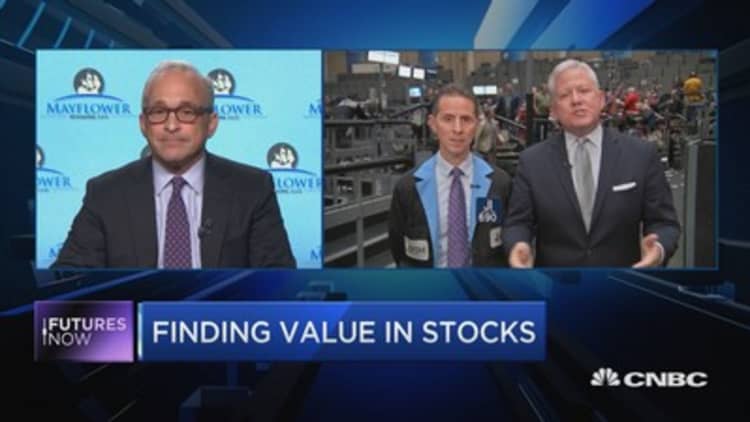
Investors: It’s time to ditch the barbells.
So says Larry Glazer, managing partner at Mayflower Advisors, who argued in a Tuesday interview on CNBC’s “Futures Now” that barbell investing — a strategy that involves buying into low-risk, stable assets as well as riskier speculative investments — is putting U.S. investors in an “extreme and dangerous” position.
“On the one hand, you’ve got the barbell of passive investing. You’ve got the S&P 500 soaking up money,” said Glazer, whose investment and advisory firm manages over $2.5 billion in assets. “On the other side of the equation, you have small, private companies, again, soaking up capital left and right from drunken sailors looking for the next hot deal.”
That activity has helped ratchet up the valuations of companies such as WeWork, which recently slashed its valuation to prepare for its public debut, and Uber, which has struggled since its IPO in May — many of which are “largely unprofitable,” Glazer said.
“The result has been a class of IPOs in 2019 that is the least profitable since the tech bust of 2000. Less than a quarter of these companies are actually going to make money,” he said.
“But … there’s some good news here,” Glazer said. “This is exactly what the market needed, because on these extremes sometimes the best seat in the boat is right in the middle where it’s the least rocky.”
That seat encompasses what Glazer sees as underinvested but increasingly valuable areas of the market: small caps, tracked broadly by the Russell 2000 index, financial stocks, energy names and European dividend stocks.
“You still have a lot of positive trends in the United States,” he said. “You’ve got low interest rates, you’ve got low energy prices, you’ve got low unemployment. You’ve got a really favorable backdrop leading into the presidential election. You’ve got the potential for global stimulus, whether it’s China or Europe or the United States. So, all those conditions do give us a tailwind for some of the areas that have been left behind where valuation is attractive.”
It may sound counterintuitive given the uncertainty around U.S. monetary policy, political tension in the Middle East and Brexit, but, to Glazer, these investments represent missed opportunities that will actually help investors mitigate some of the risks brewing in a stock market pushed to its extremes.
“There’s no doubt this is a long expansion. We’re long in the tooth, and that’s why we think a rotation is warranted here away from some of these really high-valuation names. That is where the risk in the market is today,” he said.
All in all, Glazer doesn’t want investors to hold back from investing in these forgotten groups just because they’re worried.
“Of course there are concerns here,” he said. “But you know what? We need to move past portfolio labeling and portfolio shaming. You don’t have to own the S&P 500 and be shamed out of it. It’s not about growth versus value, it’s about valuation and being flexible in your mandate, something that’s been totally out of favor the last couple of years but is going to start to come back into favor second half of this year.”
